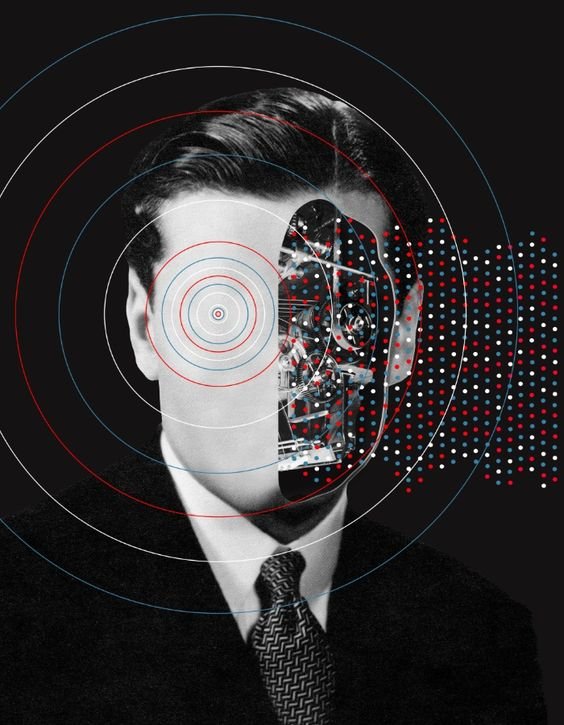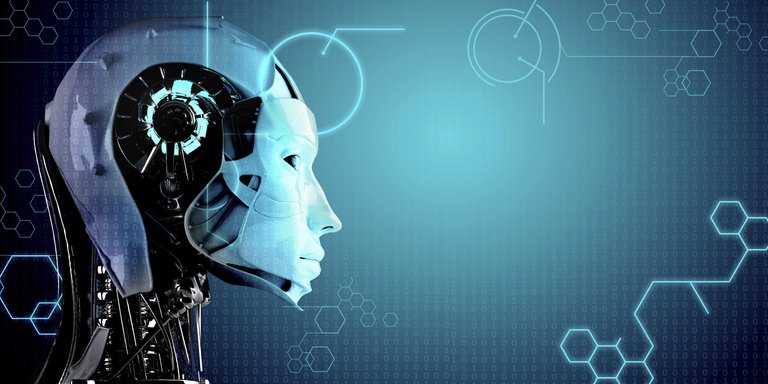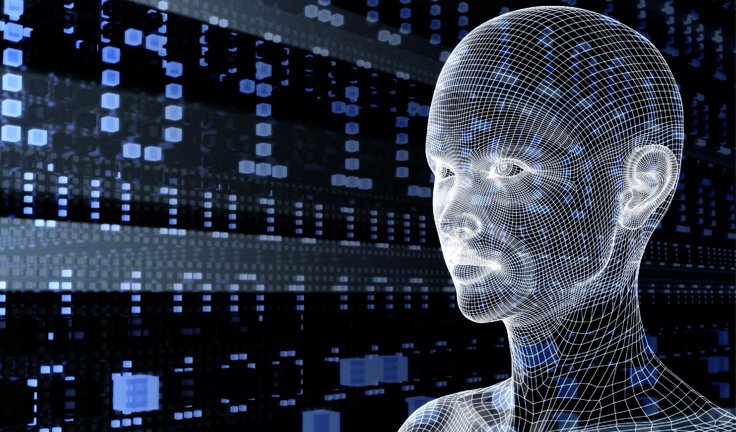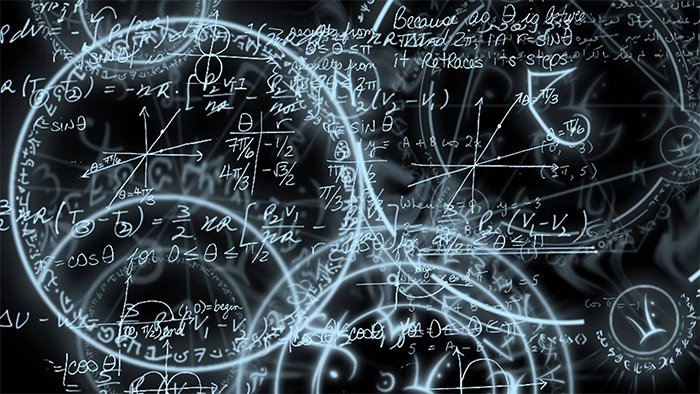Fantastic, we might call the latest prediction of Stephen Hawking, the famous British physicist and cosmologist, formulated in a recent interview given to the BBC in mid-December:
"Humans, who are constrained by slow biological evolution , could not compete and could be replaced by thinking machines."

We do not call into question Hawking's enormous scientific contribution, which, consistent with Einstein's General Theory of Relativity, holds that space and time have a beginning in the Big Bang and an end within the "black holes", their main contribution, which like many of the theories about the universe, is being questioned by other theoretical physicists.
)
However, the issue of human evolution and its creative capabilities in relation to technology go out of its scientific orbit and streak in fiction. Let's begin by recalling some of Hawking's personality traits that have to do with his current worldview. Hawking suffers from amyotrophic lateral sclerosis (ALS), a degenerative neuromotor disease that has gradually led to almost total paralysis, until he is condemned to a wheelchair and an inability to move. His condition forces him to communicate through a voice-generating device, which he activates through the facial muscles, since he can not even move his fingers to type a computer. It is to be admired his desire to maintain an intense and enriching intellectual activity as a theoretical physicist, even though his mind is cloistered in an immobile body. However, this situation seems somewhat contradictory to the comparison between mind and artificial intelligence. In a situation such as his, how can you minimize the thinking capacity that rises in your case on your own body paralyzed ?, would not be more consistent with his situation the Aristotelian idea that although the spirit needs the body to act, it does not need him to survive? Leaving aside the philosophy, it seems certain that Hawking's way of thinking has evolved from dubious agnosticism to a materialistic scientism and a practicing atheism, while still taking into account in his works the idea of God. In his book "A Brief History of Time," published in 1988, Hawking said that:
"If we were to discover a complete theory (of the universe) it would be the definitive triumph of human logic, because then we would meet the mind of God,"

and in his work "The Great Design" (2010) ends up excluding God as Creator.
According to Francisco José Soler Gil, a professor at the University of Bremen, and author, among other works, of "Materialist Mythology of Science" (2013), that the results of physics, biology or neurology at all provide a new basis for the old atheistic materialism. We can even affirm the opposite, which has contributed (especially from the field of cosmology) unpublished arguments in favor of the doctrine of creation (theories of "fine tuning"). The fact is that it does not seem legitimate or intellectually honest to confuse scientific conclusions with their interpretations, a commonplace feature in Stephen Hawking's scientific disseminator.
In the recent BBC interview, Stephen Hawking, in response to a question about the modernization of communication technologies, says that
"efforts to create thinking machines pose a threat to our existence"
also that
"the development of intelligence artificial could mean the end of the human race. "

He adds that the primitive forms of artificial intelligence developed so far have already proven to be very useful, but he fears the consequences of the creation of something that could equal or surpass human beings, since these machines "could become aware of themselves and to be redesigned at an ever-increasing pace ". Is this science or is it that Hawking has made a dent in the behavior of the evil computer Hal, in the famous Stanley Kubrick film "2001: A Space Odyssey"?

Like almost everything that Hawking says, it has an effect of causing almost inmediate polemic, in which many scientists of great value have participated. Rollo Carpenter, the British computer creator of Cleverbot, software designed to speak as a human being, who is also the one using Hawking himself, says:
"I think we will be for a long time ahead of technology and that it will develop its potential to solve many of the world's problems, but we can not absolutely predict what will happen if a machine exceeds our own intelligence, nor can we know if we will benefit infinitely, or be ignored, marginalized or destroyed by it. "

It seems to me more realistic than the British mathematician Alan Turing (1912-1954), one of the fathers of artificial intelligence, said of "intelligent machines". In Turing's possession is to have been able to decipher the Nazi codes during World War II. Well, Turing said that
"if machines are to be infallible, then they can not be intelligent,"
adding that
"we should develop fallible machines capable of learning from their mistakes."
More recently, Manuel López Michelone, professor of mathematics at the Autonomous University of Mexico and a great teacher of chess, said that
"nothing that does not have self-consciousness can be considered intelligent"

and here is where we go, because in its answer Hawking, imbued with an excessive materialistic interpretation of the human mind, Hawking adds to the absurd reductionism of certain currents of neurobiology, which do not distinguish between mind and brain, or whether soul and body are preferred. The human mind is simply irreplaceable because the mind is a set of activities and psychic processes that obey a subjective experience, which requires an ability to examine and abstract reasoning proper to the spirit. This, however much we advance in the knowledge of the functioning of the brain, it is impossible to reduce it to electrical impulses and ionic currents and to deny the existence of a distinct and immaterial reality. No matter how intelligent the algorithms and the material elements that are used in the construction of a machine, it will always lack the spontaneity and the ability to subjectively experience all the elements involved in abstract thinking. Much will be possible to advance artificial intelligence and robotics, but in the end they will be no more than machines with an automatic response capability to the situations for which they were previously designed.

Far from Hawking's scientism, science has its limits. Not recognizing them and not conforming to them means falling into a reductionism impoverishing the physical-spiritual reality of the human being. Neither the immaterial is subject to an experimental analysis nor can cause-effect relationships be established between matter and spirit, nor can spiritual matters be attributed to matter.
All my image sources are from Google and Pinterest.
If you liked this post please show us our support with an upvote and resteem, and if you would like to share your opinion with us please don't forget to leave us a comment. Thanks for reading!
This is so true and kind of creepy to deeply think about. We need to be very careful when we to the place where AI is smarter than the majority of humans. This can become a big issue, probably an issue we have not even thought about yet.
True, actually you reminded me what motivated me to write about this subject, earlier today I saw a Playgroung Article that made emphasis on how robots with AI can leave many people without jobs in a matter of a few years, and they mentioned on how the IQ of AI is different from average humans and smart humans such as Albert Einstein, an Average Human's IQ if of 100, an IQ such as Einstein's is of 190 and the IQ of AI is of 10,000, however you still need to keep in mind that they're not fully conscious beings, they are programmed to think and act in a certain way depending on their tasks given. But theres the counter part that really scares the shit out of me (sorry for the language) AI is just a part of an advance computer logic system and as we all know nothing is "unhackable" theres always a weak spot for cyber terrorists to attack, and the worst part in all this is that if AI covers mayor ground of human tasks in a couple of years its more than obvious that the major part is going to the Army, Navy and Airforce, even Nasa, so if some terrorists decides to hack any of the above we're totally screwed.
Personally I beleive that there should be a balance between the digital world and Analogs, there's just too much risks at digitizing everything.
Nice to meet you, @mutatedalien095! @cleverbot can you say @OriginalWorks?
what?
This post recieved an upvote from minnowpond. If you would like to recieve upvotes from minnowponds team on all your posts, simply FOLLOW @minnowpond.
To receive an upvote send 0.25 SBD to @minnowpond with your posts url as the memo To receive an reSteem send 0.75 SBD to @minnowpond with your posts url as the memo To receive an upvote and a reSteem send 1.00SBD to @minnowpond with your posts url as the memo@eileenbeach has voted on behalf of @minnowpond. If you would like to recieve upvotes from minnowponds team on all your posts, simply FOLLOW @minnowpond.
To receive an upvote send 0.25 SBD to @minnowpond with your posts url as the memo To receive an reSteem send 0.75 SBD to @minnowpond with your posts url as the memo To receive an upvote and a reSteem send 1.00SBD to @minnowpond with your posts url as the memo